My Favorite Things of 2018
Contents
1. Books (read in 2018)
2. Albums
3. Songs (from 2018)
4. TV Shows
5. Movies
6. Podcasts
7. Standup Comedy Specials
8. Miscellaneous Reflections
I read 42 books this year! Audiobooks have totally changed my life. In undergrad, I never read for pleasure during the semester, but now I’m reading (i.e. listening) constantly. Doing the dishes, folding laundry, walking to class, exercising; these are mere subsidiary tasks that facilitate more audiobook consumption.
1. Richard Rhodes – The Making of the Atomic Bomb (1986)
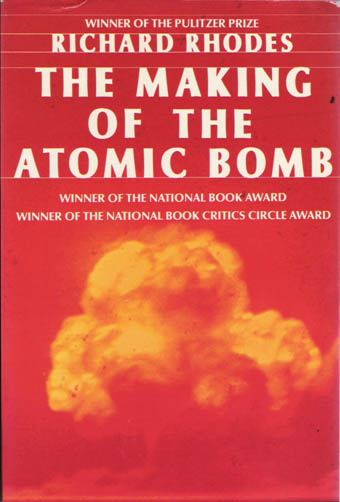
Undoubtedly one of the most important and awe-inspiring books I’ve ever read. It’s been called “an epic worthy of Milton” and I agree. It paints intimate portraits of Rutherford, Bohr, Oppenheimer, Szilard, and other scientists who, spurred only by a drive to understand the universe and propelled by the largest conflict in history, built something frightening. The specificity is bonkers and personalities shine through on every page. We learn about Einstein’s ripped pecs, Fermi’s dancing prowess, Bohr’s two-at-a-time stair hopping, Oppenheimer’s acting skills, and the temperament of everyone involved in the decision to drop the bomb. I also learned tons about geopolitics. After writing to President Roosevelt to warn of the possibility of an atomic bomb, Einstein also contacted the queen of Belgium, because the world’s largest store of uranium was located in Belgian-controlled Congo. It’s also a freaking enthralling page-turner (or, in my case, no-pauser). It’s at once a comedy (Schrödinger gets sick at Bohr’s house but Bohr refuses to stop grilling him about quantum mechanics), and a profound tragedy (diary entries from children who survived Hiroshima).
I now feel like this is one of the most important stories in human history. When learning about WWII, the Nazis get the most airtime. That’s kinda silly. There was a whole other war going on in the Pacific, with its own gigantic historical and ethical complexities. If you like physics, 20th century history, warfare, long strings of adjectives, or sparkling and cinematic narrative prose, then this hugely consequential tome is unmissable.
2. David Deutsch – The Beginning of Infinity (2011)
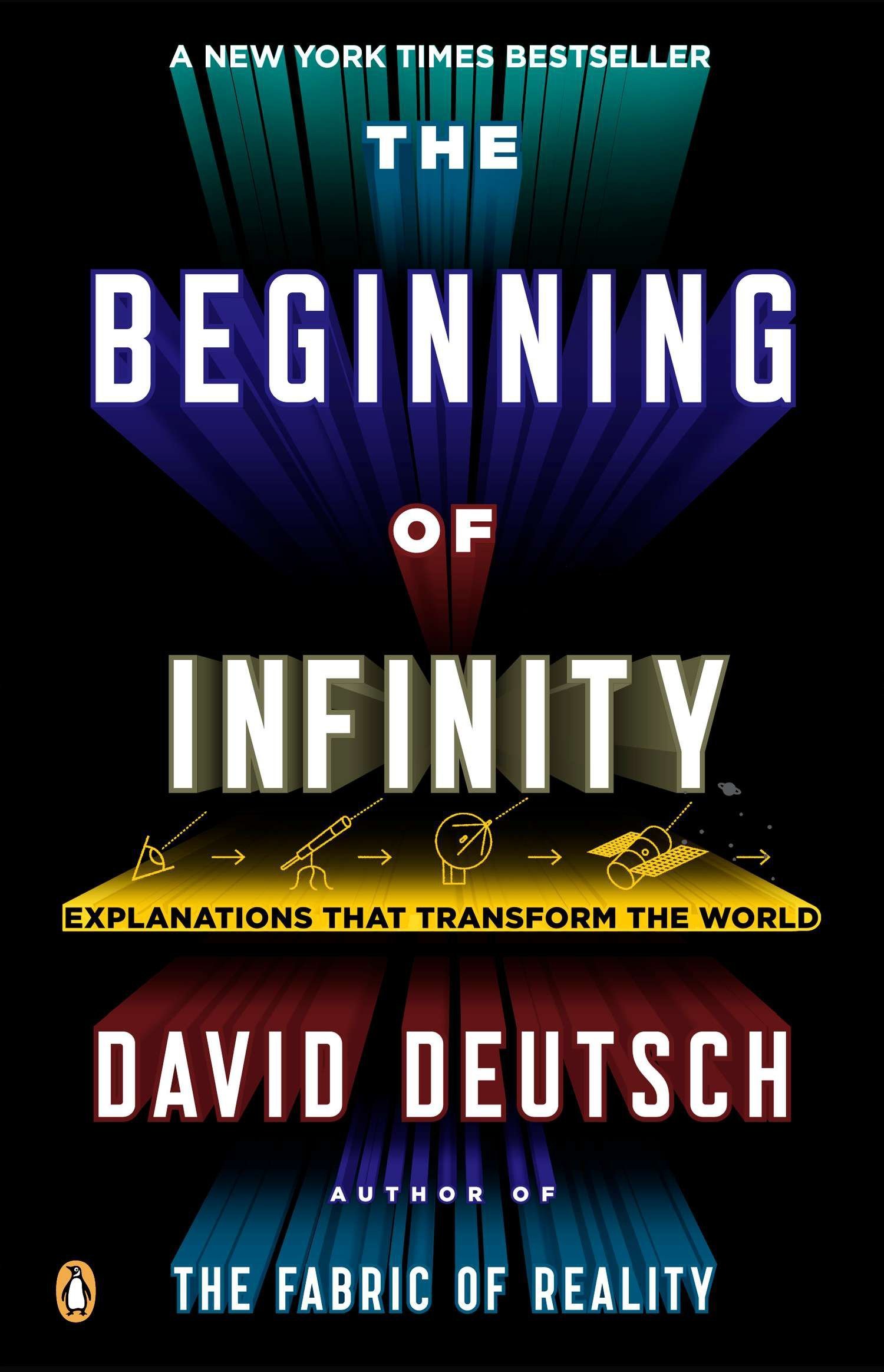
The Beginning of Infinity was a paradigm-shifting book for me. Deutsch systematically dismantles myths about science and philosophy, and erects in their place a truly novel and mind-expanding framework. Here’s my best attempt at a summary.
Stable and lasting progress arises from the search for good explanations. A good explanation must be hard to vary, in the sense that slightly altering any of its assumptions would dramatically alter its predictions. Good Explanations have universal reach, since they can be used to understand things we might never see. General relativity and quantum mechanics allow us to reason about black holes and the big bang, while natural selection allows us to think about extinct species from millions of years ago. Explanations improve by conjecture and refutation: when a new theory is proposed, we can use evidence to knock it down—whichever theory withstands the most criticism is our best guess at the truth, until something better comes along. The search for good explanations is never over, since there will always be new scientific problems to solve. Solutions to problems give rise to new problems, which must be solved in turn. That is: problems are inevitable, but problems are solvable, provided we have the right knowledge. We are therefore always at the beginning of an infinite process of knowledge creation.
This chain of reasoning leads to this potentially obvious but nevertheless astounding claim: Everything that is not forbidden by the laws of nature is achievable, given the right knowledge. (Take that in!!)
We are often told two contradictory facts about our place in the universe:
- Humans are mere chemical scum, on a typical planet, in a typical galaxy
- The universe is perfectly fine-tuned for our existence
So, which is it? Are we special, or not? The second idea is false because it’s like claiming that English is perfectly fine-tuned for the works of Shakespeare. We evolved to suit the conditions of our universe, now look back and say “wow, can you believe the universe is perfectly suited for us?” The whole story is backwards.
The first idea is false because humans (i.e. “chemical scum”) are incredibly atypical. Our planet contains configurations of matter that don’t exist anywhere else in the universe (skyscrapers, birthday cakes, thumbs), and more importantly, we are the only thing in the universe that is capable of generating representations of other parts of the universe. We can simulate in our minds or on our computers the full goings-on of a quasar millions of light-years away.
These are merely the high-level takeaways from a very dense and totally thought-provoking book. I just finished reading Deutsch’s first book, The Fabric of Reality, and it’s equally awesome.
3. Rebecca Skloot – The Immortal Life of Henrietta Lacks (2010)
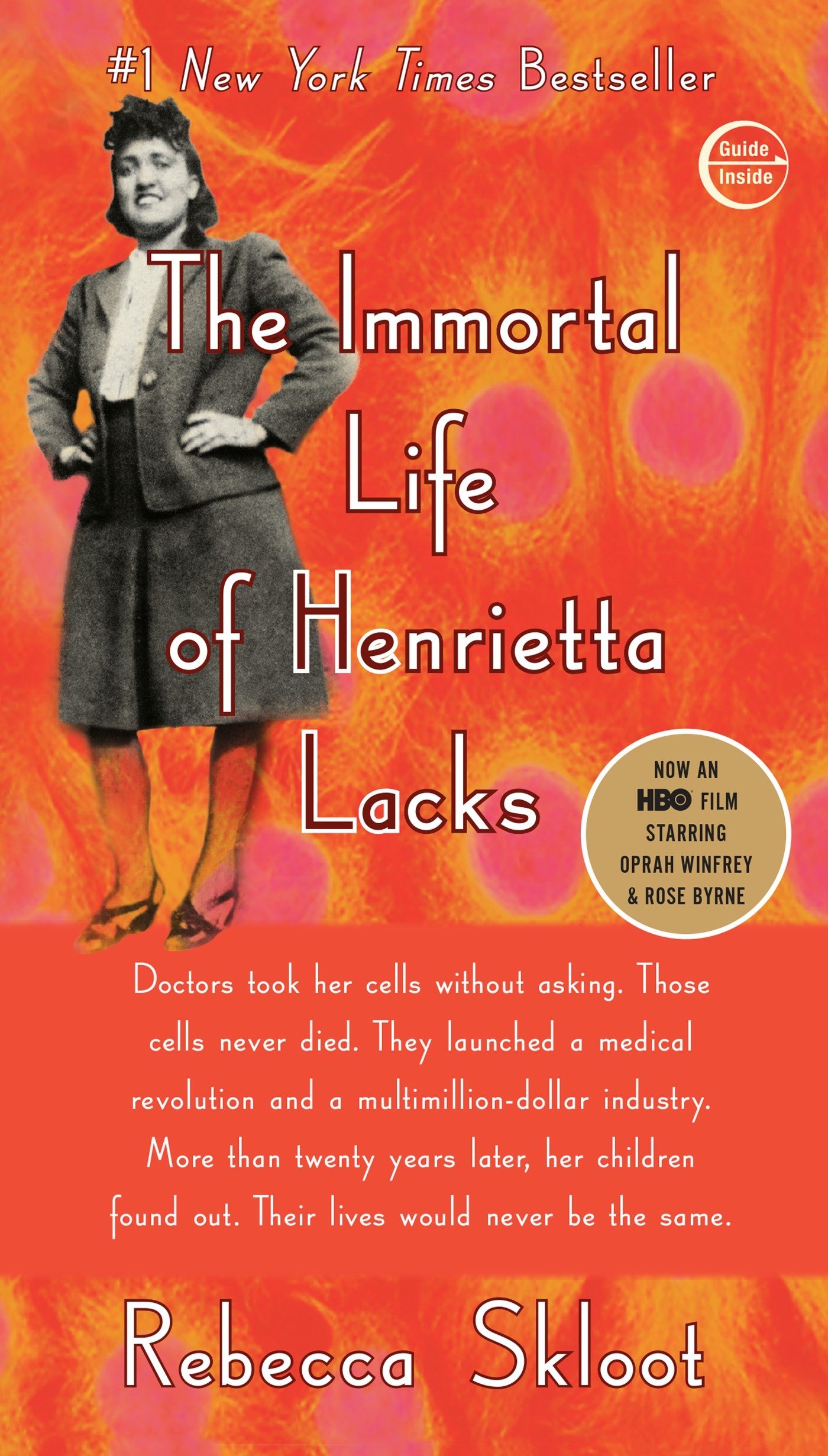
Going in, I knew that The Immortal Life Henrietta Lacks would be a straightforward biography of Henrietta Lacks, whose infinitely-reproducing cancer cells were taken without consent and used for medical research, without any compensation to Henrietta or her family. I knew that it would be an important and tragic story about race, class, science, and medicine. What I didn’t realize was that this book is written in a beautiful inter-woven time-traveling style that masterfully jumps between three narrative strands: the history of cancer research and medical ethics, the story of Henrietta Lacks and her family in 1950s Baltimore, and the buddy-cop road trip tale of Rebecca Skloot (the author) and Deborah Lacks (Henrietta’s daughter). The beautiful narrative combined with the unfathomably meticulous research–-Skloot was able to recreate the exact conditions of the day Henrietta discovered her tumor in 1951, down to the weather and color of the walls–-makes this a serious feat of journalism and scientific writing.
The most important thing about this book, though, is that it’s made Henrietta’s story an integral part of the science education curriculum. No lesson on cancer is complete without a discussion of the fraught history of medical research and a serious reflection on bioethics.
4. Will & Ariel Durant – The Lessons of History (1968)
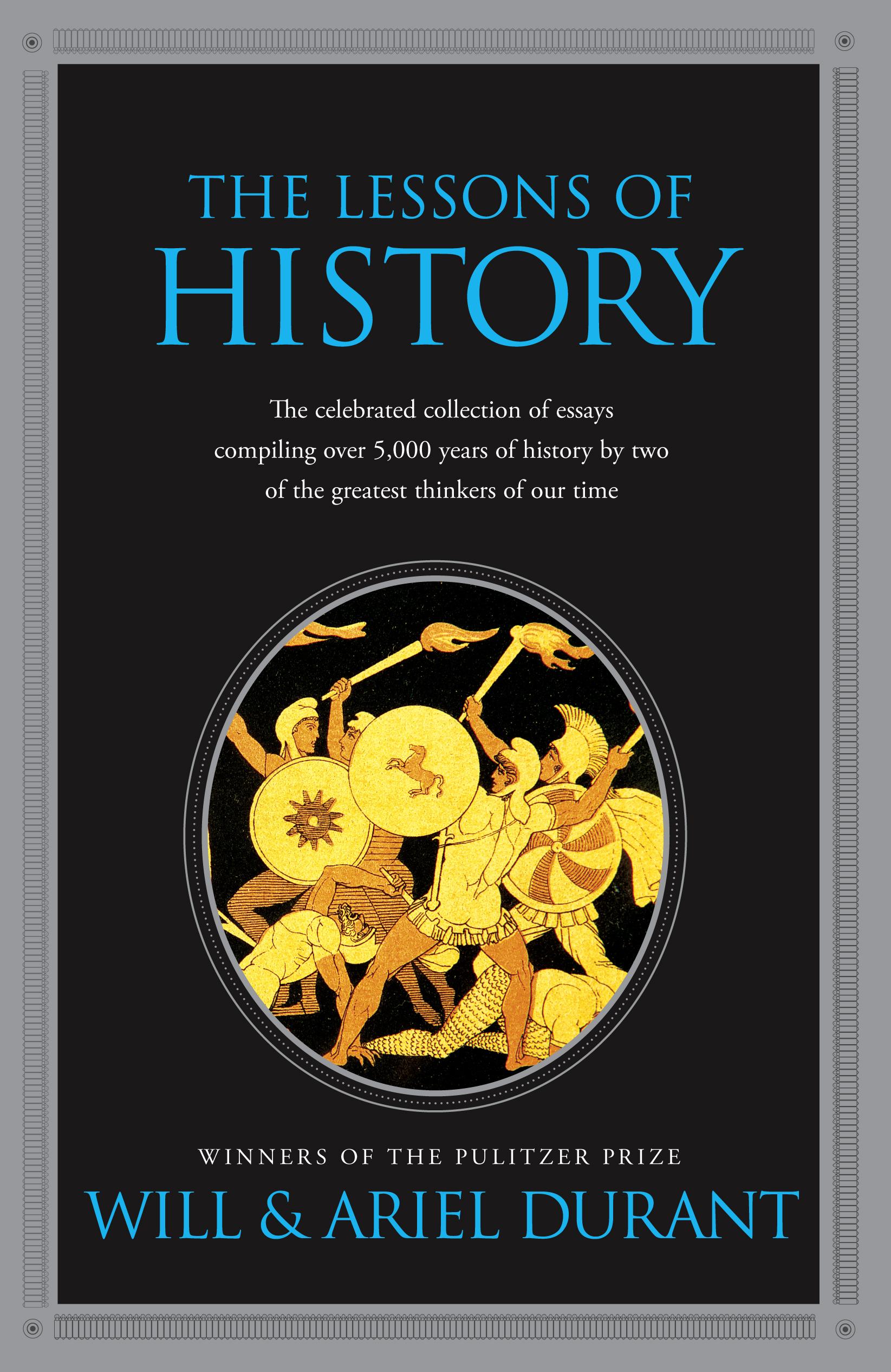
Two historians reflect on a lifetime of studying the past. The lessons of 100 centuries distilled into 100 pages. Every paragraph is bursting with aphorisms, many of which are dated, but all of which are insightful.
One key takeaway lesson for me is that almost all modern-day problems and debates have some analogue in the past. Wealth inequality, technological change, political turmoil, populism, imperialism, colonialism, socialism, capitalism: none of these are the least bit new. Be very, very skeptical any time anyone says anything is “unprecedented.” Chances are, they haven’t looked hard enough into history, the source of unbelievably more precedent than you can imagine.
A final point The Lessons of History makes excellently is that, aside from improvements in the material conditions of life (health, nourishment, etc.), each successive generation is better off because they have more of the lineage of human history to reflect on. There is more art, music, science, history, and philosophy available for consumption and contemplation today than ever before, and this is true of every generation to follow.
Incidentally, Chance the Rapper makes the exact same point in a commencement address he gave earlier this year.
James Brown was revolutionary, but he lacked for inspiration something that we now have: the music of James Brown. Michael Jackson had James Brown, but didn’t have Michael Jackson. Beyoncé had Michael Jackson, but also experienced the unthinkable: a childhood void of the music of Beyoncé. We get Beyoncé, and can continue to build on top of this massive cultural legacy. I find that to be pretty dang inspiring.
5. Atul Gawande – Being Mortal (2014)
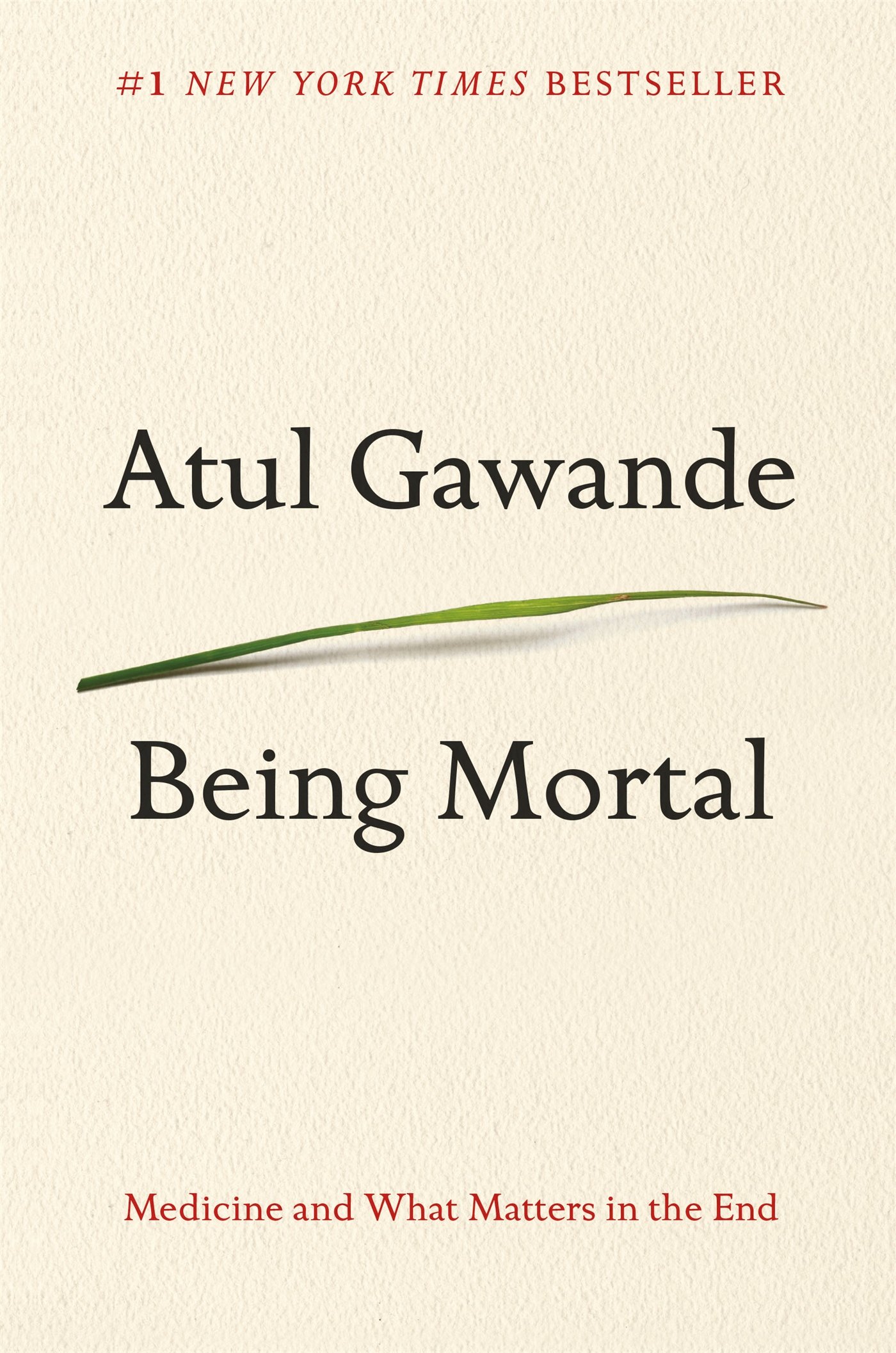
Our current approach to end-of-life care is whack. When a patient is diagnosed with a terminal illness, many doctors try extend their life no matter the cost, and often fail to take into account patients’ wishes and priorities. Invasive surgeries, unpleasant therapies, buckets of medication, life in a hospital with no friends or family, and huge medical expenses are a routine part of end-of-life care. And even if these procedures are successful, there’s an information asymmetry at play. Terminally ill patients think they’re gaining decades of life; doctors know they’re only being spared months. This over-medicalization of death forgets that the end of life should be dignified and meaningful, not isolating and dispiriting.
And paradoxically, this over-medicalization might not even be the most effective way to extend life at all! When doctors themselves become terminally ill, they reject the standard procedures, opting instead to live out their final days in comfort in hospice care, rather than stuck in a hospital bed…and then end up living longer anyway!
In a world with an increasingly aging population, Being Mortal is an eye-opening, must-read book.
6. Kate Manne – Down Girl (2017)
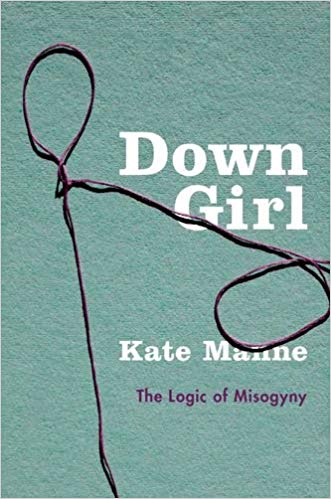
This is a dense, technically rigorous, meticulously argued philosophical treatise on misogyny. I learned a great deal. Manne argues that misogyny is not about men’s hatred of women, per se, but rather about the attitudes and societal structures that keep women in a subservient position. Contrary to popular belief, men don’t seek to deprive women of their humanity or personhood. The logic of misogyny is that women’s humanity ought to be directed to the service of men.
There is a broader point here: when one group oppresses another, whether it be in the context of patriarchy, slavery, or genocide, it is not because they view the oppressed group as sub-human. You wouldn’t be concerned if a sub-human entity shamed, humiliated, or betrayed you, nor would you seek to objectify, punish, or dominate them. As Manne says: “it’s not a sense of a woman’s humanity that is lacking. Her humanity is precisely the problem.”
For a brilliant summary, check out this article from the psychologist Paul Bloom, which is where I first heard about the book. Down Girl is essential, especially for men, in order to understand social forces that we can’t see, and often unknowingly perpetuate.
7. David Kaiser – How The Hippies Saved Physics (2011)
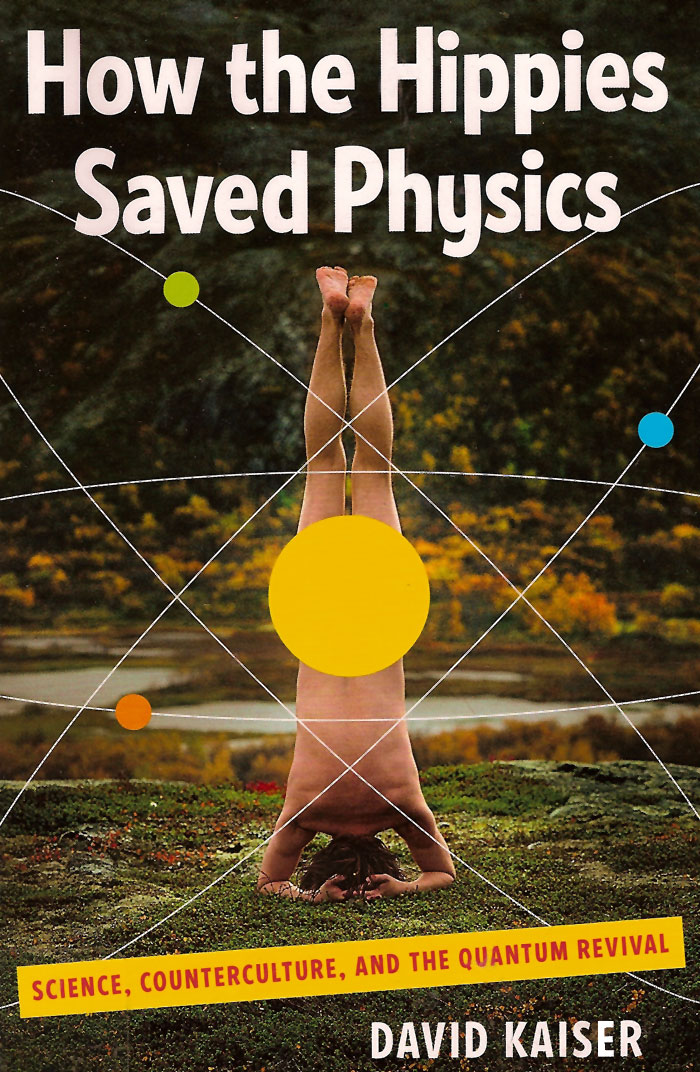
After World War II, the US government, especially the Department of Defense made huge investments in physics research, since physicists had played a huge role in the war (see The Making of the Atomic Bomb!). Physicists were tasked with building on the success (scientifically, not ethically speaking) of the bomb. In the late ’60s and early ’70s, however, as the threat of the Cold War began to wane, this funding and fervor subsided, leaving huge numbers of PhD students without job prospects. A sizable chunk of these newly unemployed students did what many people were doing in the late ’60s and early ’70s: moving to California and joining the counterculture revolution. This is backdrop against How The Hippies Saved Physics is set.
The scientists who formalized quantum mechanics in the 1920s had to contend with some weirdness in the theory: particles that remain mutually entangled even when light-years away, experiments that appear to yield different results depending on the presence of an observer, and superpositions of states (like Schrödinger’s eponymous cat, which was initially proposed to ridicule the idea of superposition). Though there was initially debate over how to interpret these bizarre findings, the QM community eventually settled on an approach known as “shut up and calculate”–-if the equations work, who cares about the philosophical implications of superposition or entanglement?
The Fundamental Fysiks Group cared. This rag-tag band of scientist-hippies were as passionate about faith healing, mind-reading, mysticism, and the occult as they were about academic physics. They were concerned that an ESP gap with the Soviet Union was as worrisome as a missile gap, and helped spur “remote viewing” experiments at Stanford. They founded a seminar on quantum entanglement at the Essalen Institute, which is better known for LSD, meditation, and yoga than for Hilbert spaces and momentum operators. They argued that telekinesis was possible: if matter can alter consciousness, consciousness should be able to alter matter. But they also took seriously the idea of non-locality–-namely, that microscopic particles can act in concert even when separated by huge distances (i.e. billions of light-years). Einstein dismissed this idea as “spooky action at a distance,” but it turns out to be true. It’s kind of hard to believe, but much of contemporary quantum information science, including quantum computing, is only possible because of ideas that were discussed, debated, and preserved by these people:
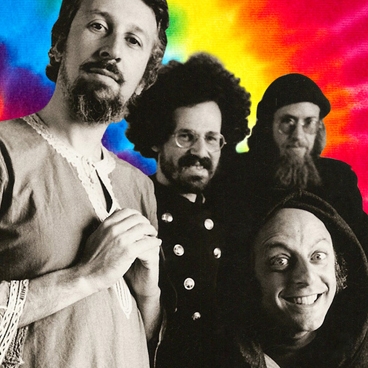
8. Steve Martin – Born Standing Up (2007)
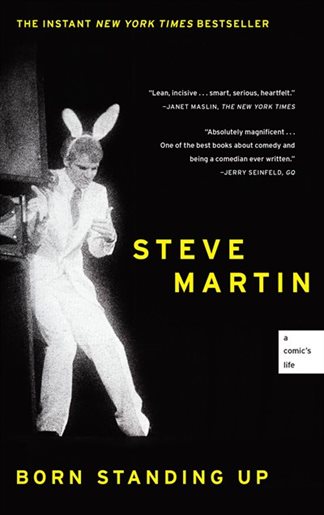
It’s a dang shame that Steve Martin’s early comedy is relegated to the archives of stand-up history, because it’s still unbelievably funny. Listen, in full, to this song, from 1977. It feels absolutely timeless.
If Born Standing Up makes anything clear, it’s that Steve Martin worked his tuchus off to get to where he is. Becoming a successful comedian requires years and years of toil without recognition, dozens of bombed shows, countless hours of workshopping material, and a refusal to ever become complacent. Only then can you craft one-liners like these:
New research suggests that more Americans watch television than any other appliance.
I’ve been your friend for a while, and I think I can ask you this question: What time is it?
The book is read by Steve Martin himself, and hearing his old material in his own voice is such a treat.
At this point in the book-selection process, I became overwhelmed by the number of good books I read this year and decided I couldn’t possibly round out the top-10. So I’ll simply mention some more books I loved, without the daunting numbering scheme.
Will Durant – The Story of Philosophy (1924)

The best summary I’ve ever read of the ideas of Socrates, Plato, Aristotle, Spinoza, and Bacon. Will Durant is a flippin’ poet, and he has more delicious turns of phrase per page than any other historian I’ve ever read. The descriptions of the more modern the philosophers are a bit sketchier, but that’s to be expected from a book written in 1924. But everything up to the Enlightenment is unimpeachable and eloquent as heck.
Paul Kalanithi – When Breath Becomes Air (2016)
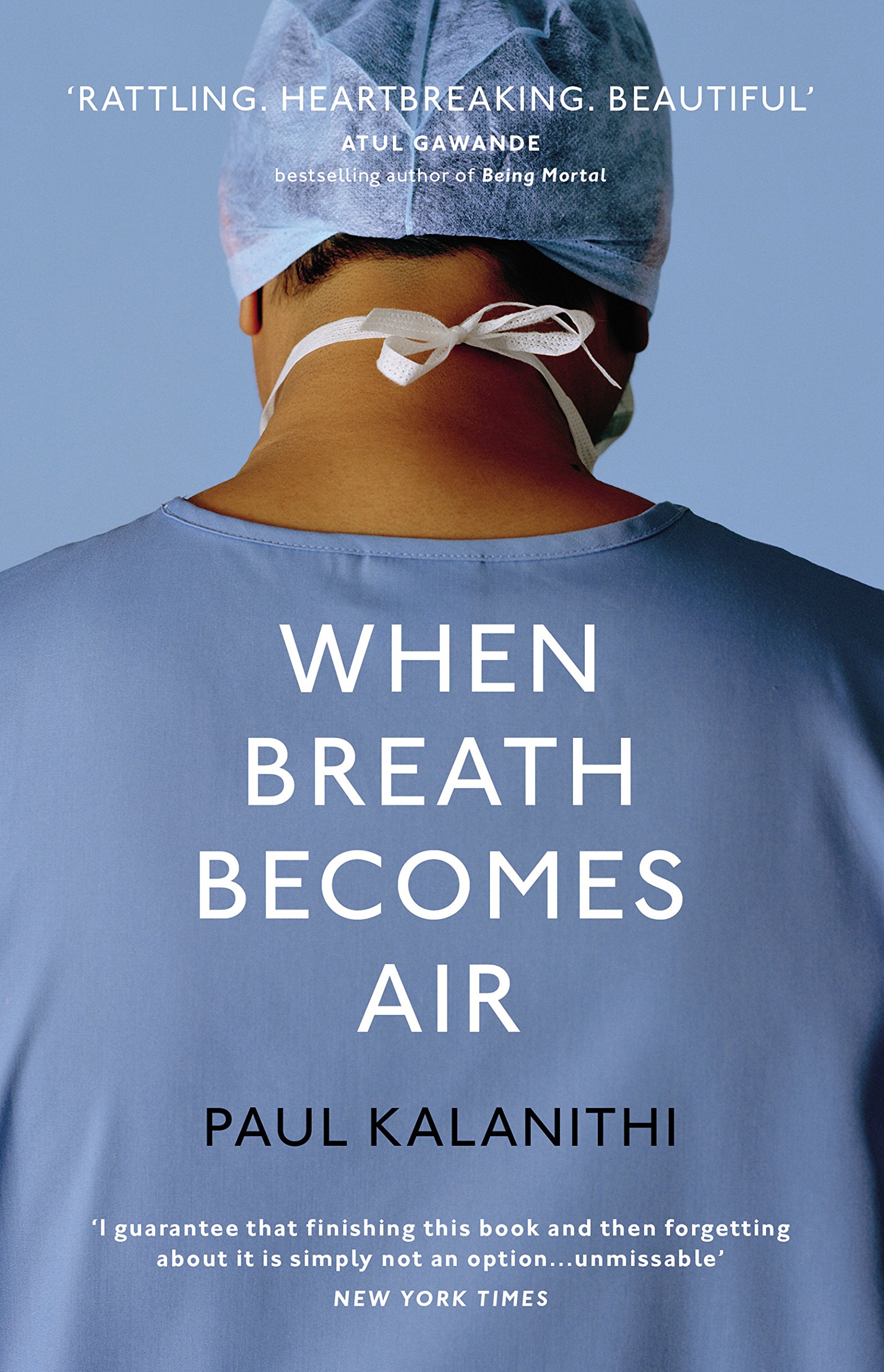
This joined Being Mortal in my “books about death” phase earlier this year (don’t ask). When Breath Becomes Air is the autobiography of Paul Kalanithi, an ultra-ambitious and pretty brilliant neurosurgeon/neuroscientist who was diagnosed with lung cancer near the end of his residency/postdoc at Stanford. The book is sad as hell, but I loved it because it gave me a front-row seat to world I will never see from the inside: dissecting a cadaver, operating on a hippocampus, telling a patient they will die. It was also harrowing to see someone with such huge plans for his life grapple with the fact that he’ll never be able to achieve those goals. Hearing Paul Kalanithi work through his end-of-life priorities makes you want to get your life goals into focus right away. (And yet here I am, on a schedule of 10 minutes work, 4 hours music on repeat)
Ta-Nehisi Coates – We Were Eight Years In Power (2017)
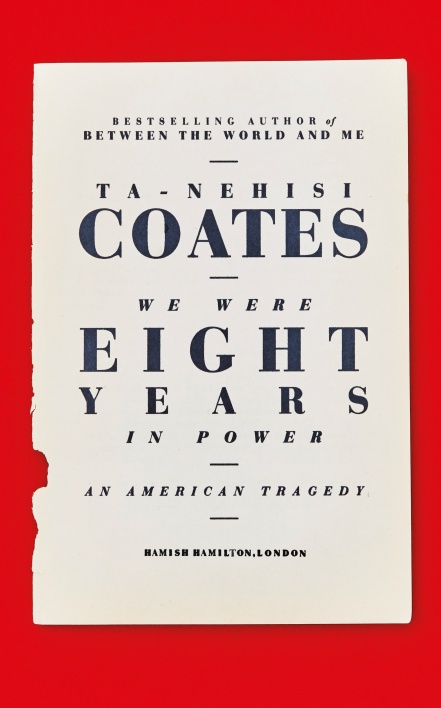
What I love most about Ta-Nehisi Coates is that his essays are always rooted in history. Everything is tied back to the colonizing of the Americas, or the Revolutionary War, or the Civil War, or Jim Crow, or redlining, or segregation. He expertly picks apart how racism can manifest itself. Most interesting to me is how specific racist policies from the past can lead to vastly unequal outcomes in the present, even if, hypothetically, there were no present-day racists (which, to be sure, is preposterous). Even if you’ve read all of Coates’ Atlantic articles already, it’s worth reading We Were Eight Years in Power to see them all in a coherent narrative.
Ashlee Vance – Elon Musk (2015)

Here’s something I agree with Peter Thiel on: the last couple decades have seen amazing advances in the world of bits (software, the internet, social media, AI), but not nearly enough advance in the world of physical stuff. Say what you will about Elon Musk: he’s the only person ridiculous enough to make self-driving and/or electric-powered cars a reality—both a huge boon for humans, like, being alive more—and take the coolest thing our species does (space travel) to the next level. Pretty freaking cool.
Tina Fey – Bossypants (2011)
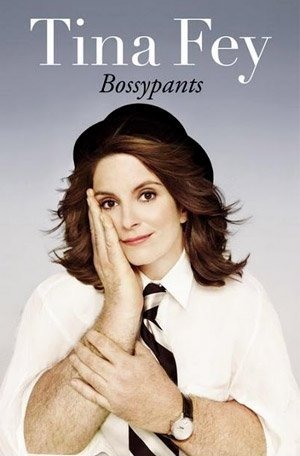
I re-read Bossypants as part of my “women comedians’ memoirs” binge at the start of 2018. Out of all of the ones I read—Amy Poehler’s, Amy Schumer’s, both of Mindy Kaling’s, Anna Kendrick’s—Tina Fey’s is by far the best. The narration is phenomenal and the jokes are plentiful (as a warning in the preface: “I use all kinds of elitist words like ‘impervious’ and ‘gerund’”).
 1. Vulfpeck – Hill Climber
1. Vulfpeck – Hill Climber
 2. Lawrence – Living Room
2. Lawrence – Living Room
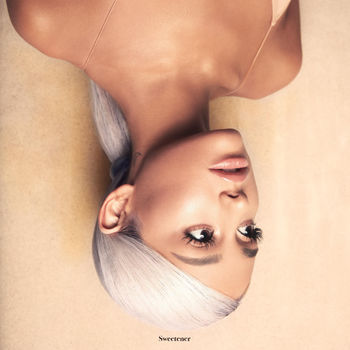 3. Ariana Grande – Sweetener
3. Ariana Grande – Sweetener
 4. Tom Misch – Geography
4. Tom Misch – Geography
 5. The Fearles Flyers – The Fearless Flyers
5. The Fearles Flyers – The Fearless Flyers
 6. Pusha T – Daytona
6. Pusha T – Daytona
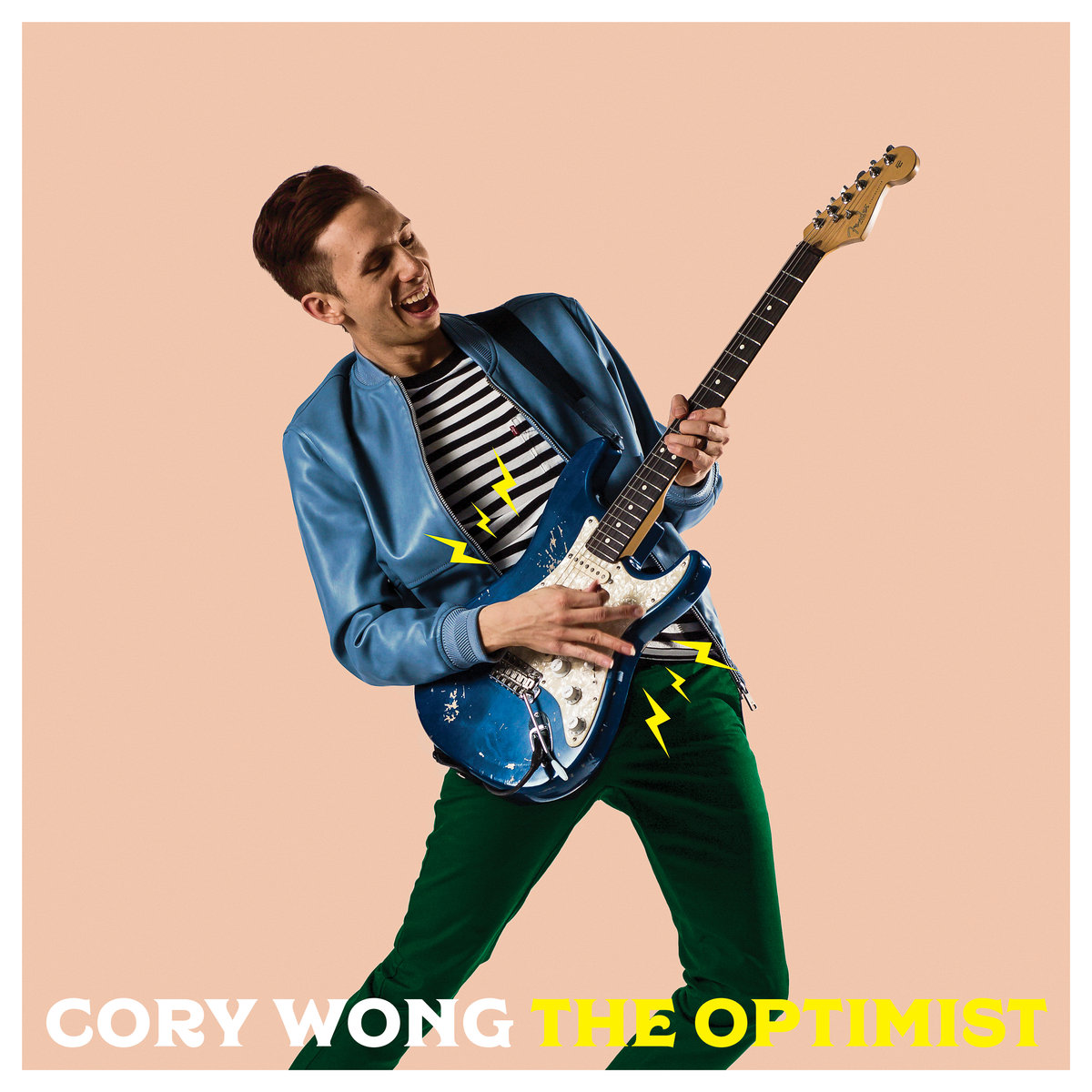 7. Cory Wong – The Optimist
7. Cory Wong – The Optimist
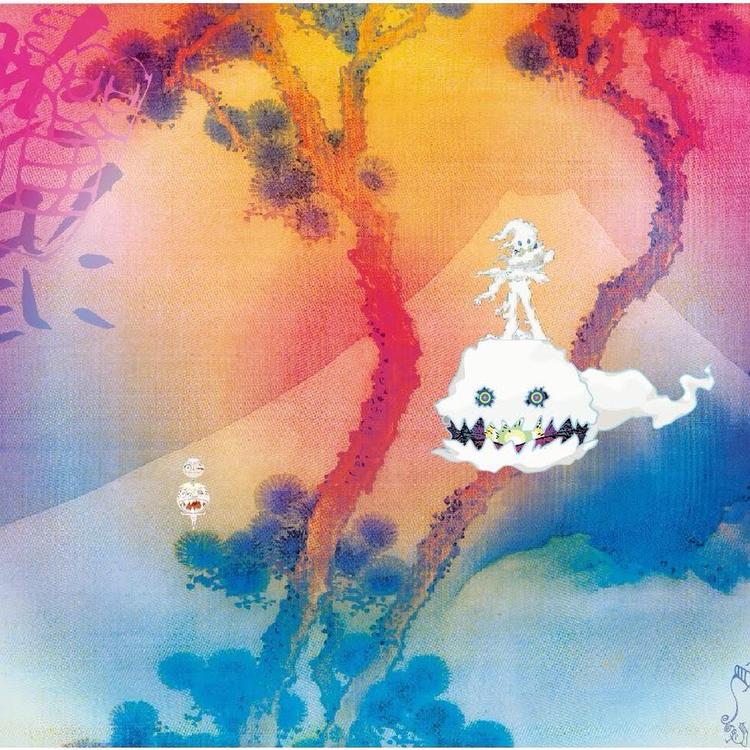 8. Kanye West & Kid Cudi – Kids See Ghosts
8. Kanye West & Kid Cudi – Kids See Ghosts
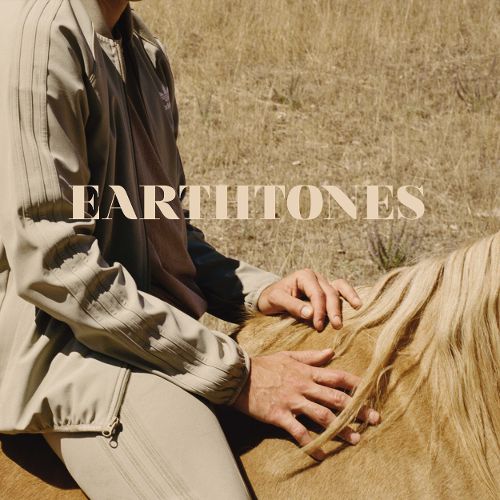 9. Bahamas – Earthtones
9. Bahamas – Earthtones
 10. Cardi B – Invasion of Privacy
10. Cardi B – Invasion of Privacy
Honorable Mentions
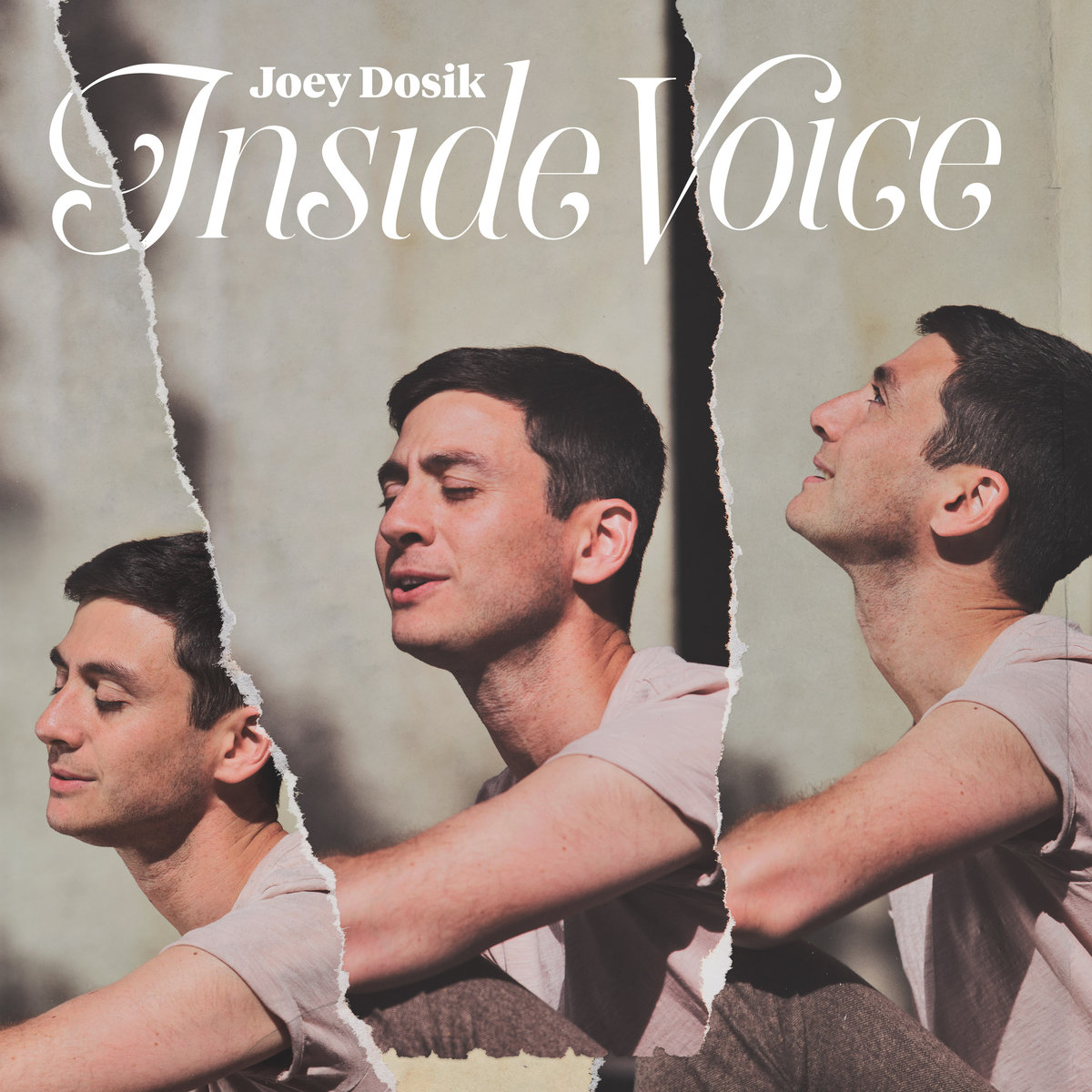 11. Joey Dosik – Inside Voice
11. Joey Dosik – Inside Voice
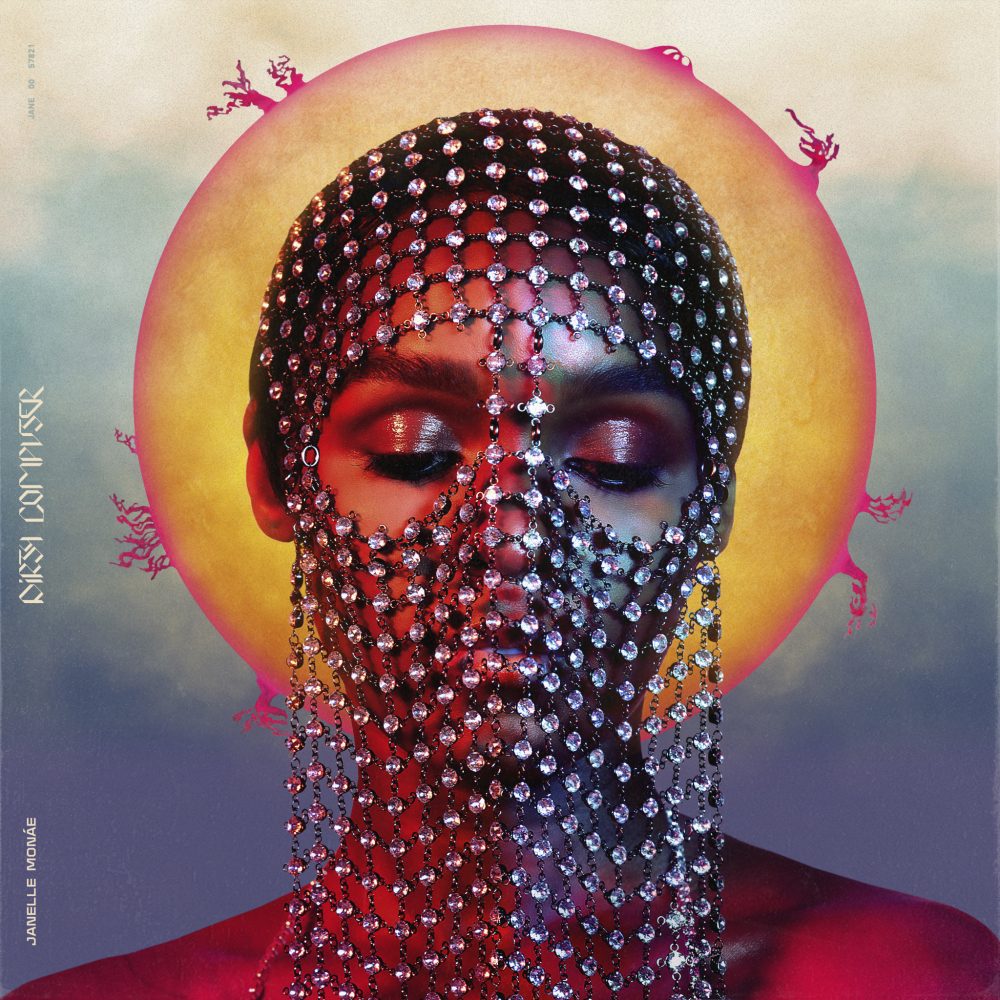 12. Janelle Monae – Dirty Computer
12. Janelle Monae – Dirty Computer
Some songs I truly loved-loved (like, make-faces-alone-in-front-of-the-mirror-level love) this year were:
- Pusha T – If You Know You Know
- Cory Wong – ‘91 Maxima
- Ariana Grande – Get Well Soon
- Vulfpeck – Darwin Derby
- Pomplamoose – Jamirobeegees Mashup
- Lawrence – Probably Up
- John Mayer – New Light
Here are some songs I fell in love with that weren’t released this year:
- CHVRCHES – The Mother We Share
- Daniel Caesar ft. H.E.R. – Best Part
- Rex Orange County – Loving Is Easy
- Saint Motel – My Type
These songs, plus many, many more that I enjoyed this year, are on this (randomly ordered) Spotify playlist. Enjoy!
- The Good Place
- Atlanta: Robbin’ Season
- Curb Your Enthusiasm, Season 9
- Better Call Saul
- OJ: Made In America
- American Crime Story: OJ Simpson
- Fawlty Towers
My fellow Canadians (& Americans). Many of us grow up blatantly unaware of a great deal of British television, but I implore you: watch Fawlty Towers. Twelve impeccable, front-to-back brilliant episodes that consistently left me chuckling for hours afterwards.
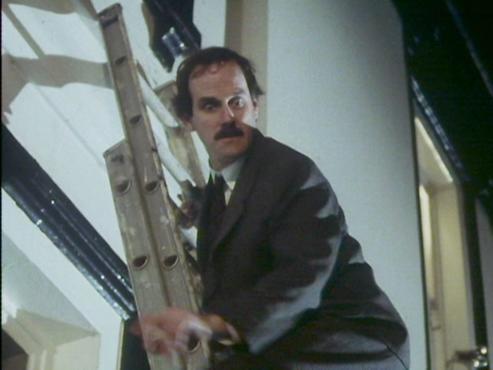
- Spiderman: Into The Spider-Verse
- Black Panther
- A Star Is Born
- Vice
-
- Blakkklansman
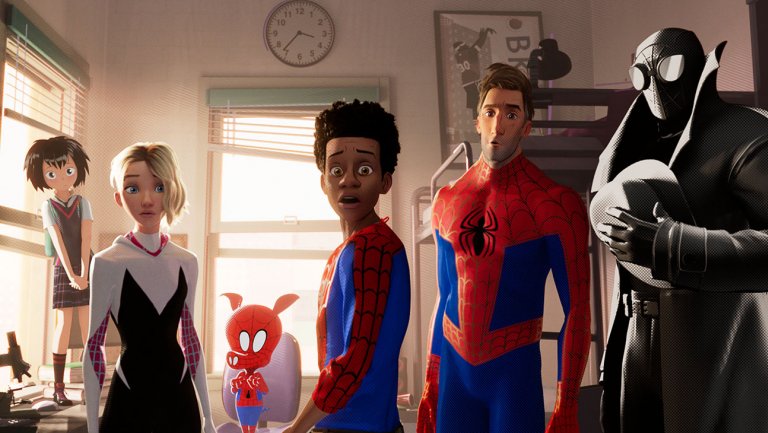
Waking Up With Sam Harris
Still my favorite podcast, even though I find myself increasingly taking issue with many of Sam’s views. A couple of my favorite episodes were:
- Is #MeToo Going Too Far (with Rebecca Traister)
- Traister challenges and engages with Sam in a super productive way, and models how to be persuasive and assertive without a hint of contempt. Sam is also uncharacteristically charitable, which makes for a great discussion.
- Gary Taubes: The case against sugar
- The most interesting thing I learned is that causal inference is unbelievably hard. Is it true that having a glass of wine with dinner is good for you, or do people with stable, happy, healthy lives have the luxury of enjoying a nightly glass of wine? Do placebos actually work as effectively as real medications, or do placebo studies simply show that the type of people who obey their doctor’s orders and complete prescribed treatments in their entirety are more likely to become healthy? After all: neither the placebo nor the real medication work if they’re not taken consistently.
The Ezra Klein Show
- The Green Pill with Dr. Melanie Joy
- A harrowing conversation about the brutality of animal eating, or carnism, an ideology as insidious and systemic as any other -ism out there. Get this: more animals killed each day than the number of humans killed in all wars, combined. I don’t even know how to process a statistic like that.
- Anand Giridharadas on the elite charade of changing the world
- This was an important one. Anand criticizes elites in the corporate world for starting “philanthropic side-hustles” instead of confronting the harm they do in their day jobs, and for existing in wealthy, lavish echo chambers.
The Bill Simmons Podcast
- How I keep up with American sports in an inconvenient time zone. I especially enjoyed Bill’s converstaions with Kevin Durant, and his debate with Juliet Litman on the 100 greatest TV episodes of the century.
Caliphate
- A ten-episode series from New York Times reporter Rukmini Callimachi on how ISIS recruited and radicalized a young Canadian man who has since returned from Syria. We learn about how recruits educated in fundamentalist religious teachings then trained to commit heinous acts of violence, including brutal beheadings. Rukmini’s own journalism consists of sneaking into ISIS-held buildings and searching for documents, receipts, notepads, or any other paper trail that can be used to understand the inner workings of the terrorist organization. The entire podcast series is captivating and scary as hell. By the way: what even happened to ISIS? Is that, like, not a thing anymore?
Very Bad Wizards
- I can’t really pick a specific episode, but Dave Pizarro (a psychologist) and Tamler Sommers (a philosopher) strike the perfect hilarity-to-rigour ratio.
Lexicon Valley
- John McWhorter is a goddamn national treasure. He effortlessly weaves together interesting stories about the English language while speaking in fluent musical theater and old movie references.
Conversations With Tyler
- Tyler Cowen is probably the best question-asker out there, and these episodes are worth listening to simply to marvel at Tyler’s preparation for the interviews. He reads everything his guest has ever written, from their current op-eds to their undergraduate theses, and never misses a beat. It’s an sight (sound) to behold (hear).
- Fred Armisen – Standup for Drummers
- Ellen DeGeneres – Relatable
- Hannah Gadsby – Nanette
- Demitri Martin – The Overthinker
- John Mulaney – Kid Gorgeous
My favorite joke from all of these is probably this one from Ellen:

San Francisco

This year, I visited San Francisco for the first time, to participate in a pretty sweet retreat called Interact. Here’s a Twitter thread where I kvell about the people I met there. In addition to Interact, I visited the Stanford campus (gorgeous, holy hell) and the offices of Google, Apple, and Khan Academy. I also met Grant Sanderson of the YouTube channel 3Blue1Brown, probably the best explanatory mathematical resource ever, and met some other ultra-impressive people while visiting houses that have websites.
A few months later, I returned to San Francisco for yet another retreat, this time with basically every Silicon Valley person I follow on Twitter convened in one place to talk about improving the world ‘n’ stuff. It was fun and fascinating, but simultaneously kind of alarming. The Silicon Valley ilk have a very well-defined lens on the world. They think that they’re thinking outside of the box, but they’ve really just all collectively moved to a new techno-utopic-libertarian-optimistic box. That’s not a bad thing, per se, and I often enjoy being in that box myself, but it would be silly not to acknowledge the homogenizing force of the Bay Area. More people probably need to jump between Oxford (critical, slow-moving, big fan of institutions) and the Bay Area (quick-paced, market-motivated, skeptical of institutions), to learn that two bubbles of ultra-smart, ultra-driven people can have wildly different cultures and lenses on the world. For what it’s worth, I like both a great deal, and probably like San Francisco more, but could never live in a place with such a well-defined ethos for any extended period of time.
The most important thing, though, I took out of my trips to San Francisco was…
Avalon

Avalon is without a doubt the best board game I’ve ever played. Within minutes of gameplay, knowledge and strategy turn into meta-meta-knowledge and meta-meta-strategy. The rules are simple: some people at the table are good, and some are bad. The bad people all know who each other are, and the good people generally don’t. People take turns around the table proposing teams; the bad people need to sneak their way onto teams, and the good people need to find each other and ban together to prevent bad people from getting onto teams and bringing them down. Some good people have privileged information: one knows who all but one of the bad people are; another knows who that privileged good person is. Neither can reveal their identity, at risk of being found out, leading to an automatic victory for the bad team.
Simple in principle, diabolical in practice. Everyone at the table is trying to simultaneously convince everyone else that they’re good, cast doubt on other players, and figure out everyone else’s identity.
Programming in R

I chose to use R for my thesis, which was a data science-heavy project on whether
tweets with moral and emotional language were more likely to be retweeted. (Here’s
the project on the Open Science Framework.
Go reproducibility!) I was lukewarm at first, but I have now absolutely fallen in
love with R, RStudio, the Tidyverse, and the incredible open source R community.
Using R feels like playing Tetris, and every time you insert a pipe operator %>%,
inserted with cmd-shift-m, you feel like you’ve just cleared five rows with a long
vertical piece. If you ever need to do anything with data, especially for social
science research, ditch whatever software you’re using and head on over to R. If
you don’t find it fun, let me know and I’ll help you turn your R experience into a
blast and a half!
I learned two important lessons from my thesis. First: when learning to code—or when learning any tricky skill, really—the most important thing is continuous feedback. You should be constantly sharing your work, and if you’re stuck for more than 10 minutes, ask an expert for help. 95% of the time, the thing you’re stuck on is silly or a strange matter of convention, and 90% of the time you’ll figure out the answer before your expert even has time to respond. My personal expert is my friend David, who is a data scientist and who was unbelievably generous with his help. It allowed me to get up to speed in R super, super quickly.
The second lesson is that it’s hella hard to improve at anything without a specific problem to solve. If your goal is “I want to learn R,” you won’t find yourself making much progress. But if your goal is “I have two weeks to finish my thesis, which involves a ton of data analysis,” then you will find yourself learning R alarmingly fast.
Evernote
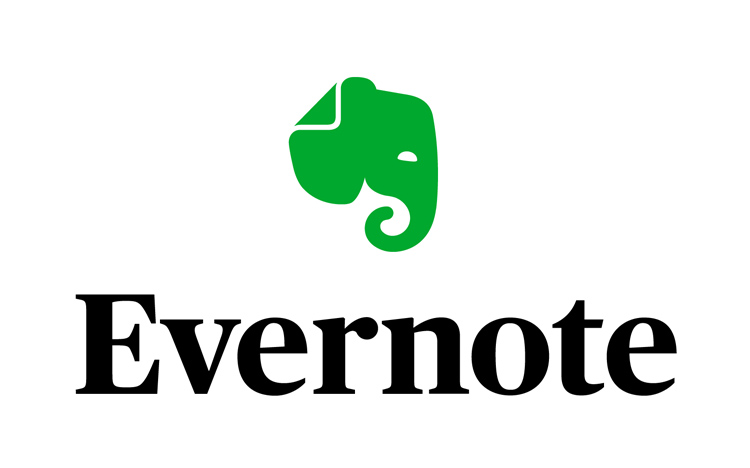
I’ve now moved all of my note-taking and information storage to Evernote, and it’s phenomenal. Whenever I watch a good YouTube video, read a good article, or hear a good podcast episode, I immediately save it to Evernote. I also take notes there while I listen to audiobooks. This ultra-long post would not have been possible if I hadn’t been continuously saving interesting stuff on Evernote. I also use it as a note-taking device for my thesis research, instead of clunky ol’ Word documents.
Edinburgh Fringe Festival
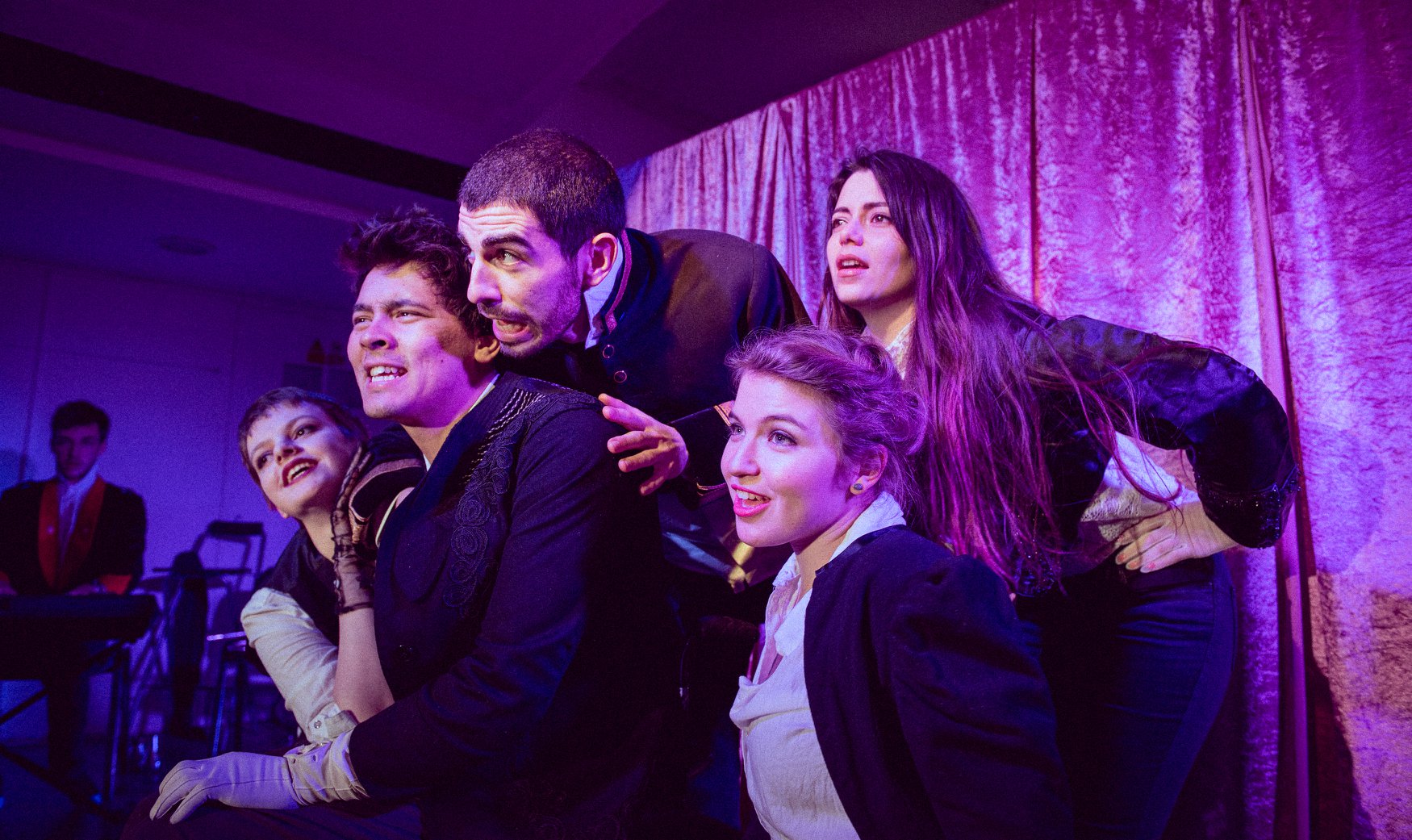
This summer I travelled to the Edinburgh Fringe Festival to perform improv with the Oxford Imps. The Fringe is absolutely wildt. There are some 4,000 shows in the whole festival. At any given moment, there are hundreds of things you can go see. It’s overwhelming, but so, so fun. There many highlights to name, but two take-aways were Mat Ewins, who used technology on stage in a way I’d never seen before (this is a small sample that’s maybe 10% as cool as his one-hour show), and The Piece, an avant-garde experiential theater piece that was a parody of avant-garde experiential theater pieces.
My favorite joke of the festival came courtesy of fellow Imp-turned-professional-standup-comedian Chris Turner:
Never apologize! Never explain!...Sorry, that's my motto.
Veganism

Last year I wrote about vegetarianism, but this year I’ve taken it to the next level. I’ve basically cut out dairy, except for the occasional cheese binge, and have not bought eggs in over a year. This was really only possible because I finally learned how to cook, and knowing what to do with vegetables makes it much easier to eat them for every meal. I think being dogmatically vegan, like being dogmatically most things, is not a good idea, but even a small step in that direction is an ethical and healthy move.
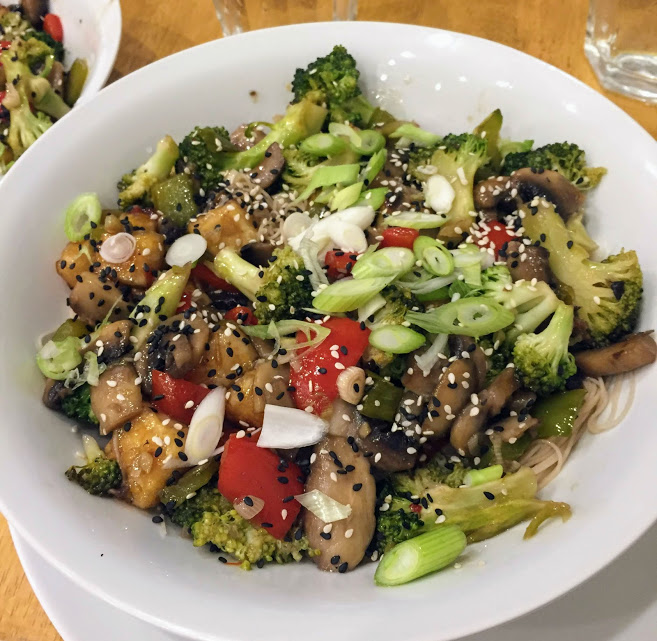
Emailing Your Heroes
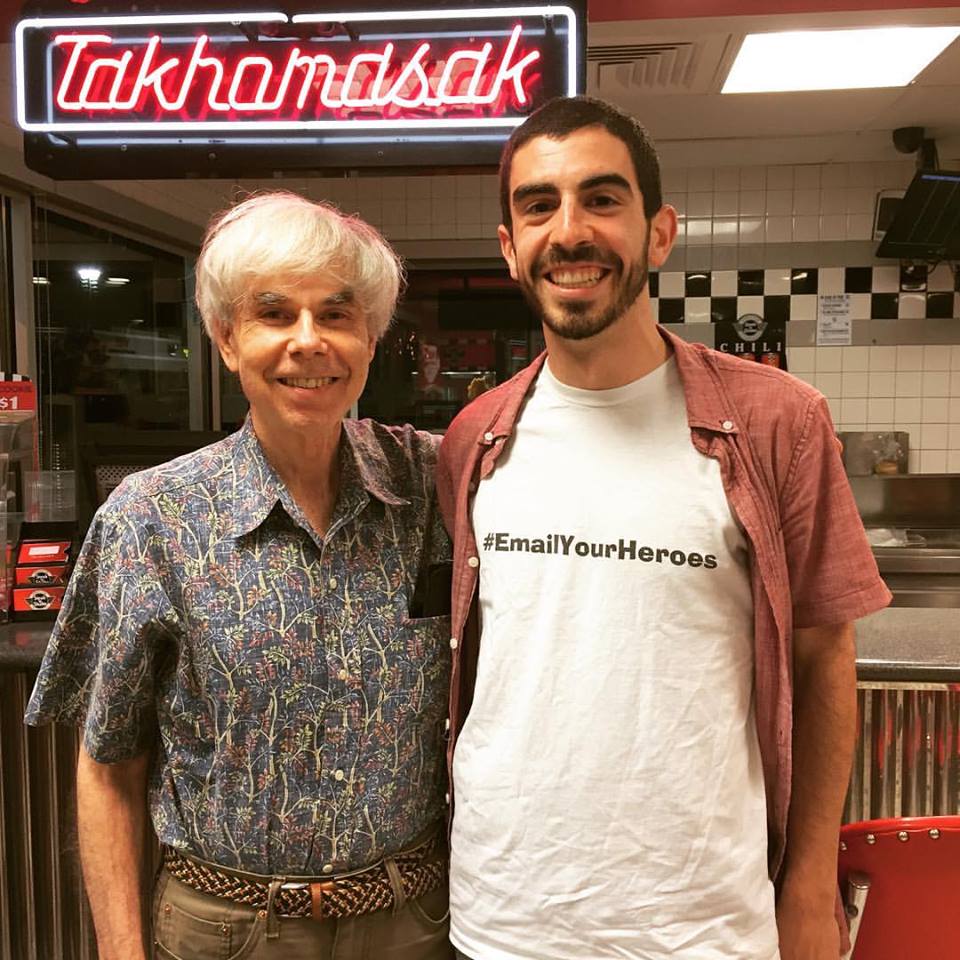
For the past few years, I have been using the phrase “email your heroes” to encourage people to reach out to people they admire and express their appreciation and gratitude. But recently that idea has evolved for me. It’s no longer about emailing just your heroes. Email everybody! Enjoyed a book? Email the author! Stumble upon a little-known artist? Tweet them your appreciation! Read a great scientific paper? Thank the authors! People who make art, music, literature, and science are are often doing thankless work, and they will be enthralled to hear from you.
Here are some examples; let me know if you do the same, and if you get any replies!
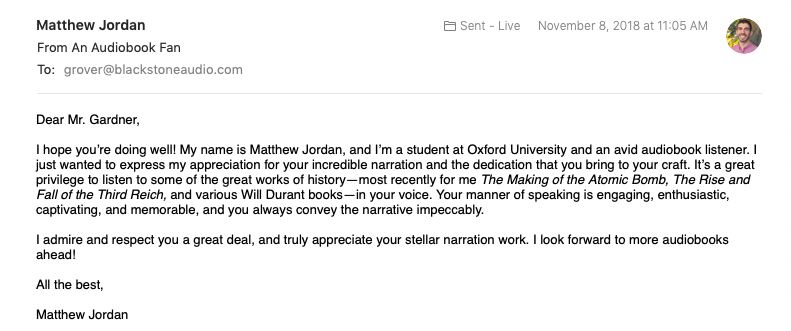
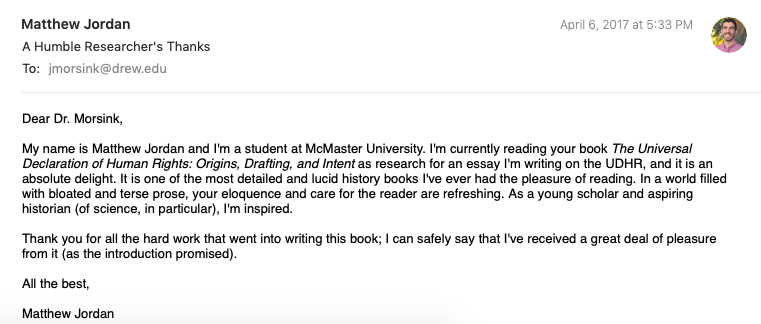

Vulfpeck
Where to even begin. They’re the greatest. They’re the flipping best.
I had the ridiculous privilege of performing with them again, this time in London, and it was a thrill. I wrote a little thing about it on Instagram.
More importantly, though, they did this.
I kid you not, after I watched the live-stream that featured this performance, I was unable to move for 2 hours.
Other Random Things I Liked
- Alexandria Ocasio-Cortez’s tweets
- This conversation between Steven Pinker and John McWhorter
- Robert Sapolsky’s TED Talk
- Vi Hart and Henry Segerman’s Peace for Triple Piano. Even better than the video itself is the making-of
- This pair of talks by Douglas Hofstadter on machine translation (MT): the MT-ness of MT and the Bu-T of Hu-T
- This Vlogbrothers video: Why Some Environmentalists Hate Captain Planet
- This article from the prolific and astoundingly brilliant Slate Star Codex on two ways of viewing problems: Conflict vs. Mistake
- This funny and cogent case for nuclear energy on Dutch TV
- This New Yorker article: What Does It Mean To Die?
- This blog post on why the Stanford Prison Experiment was a total sham
A post of this length is bound to have plenty of errors! Please let me know if you spot any. And thank you so much for reading to the end!